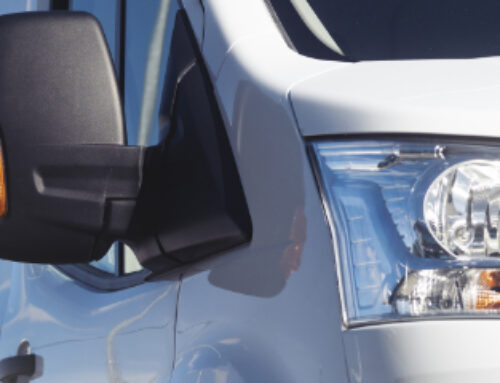[fusion_builder_container hundred_percent=”no” hundred_percent_height=”no” hundred_percent_height_scroll=”no” hundred_percent_height_center_content=”yes” equal_height_columns=”no” hide_on_mobile=”small-visibility,medium-visibility,large-visibility” status=”published” border_style=”solid” gradient_start_position=”0″ gradient_end_position=”100″ gradient_type=”linear” radial_direction=”center center” linear_angle=”180″ background_position=”center center” background_repeat=”no-repeat” fade=”no” background_parallax=”none” enable_mobile=”no” parallax_speed=”0.3″ background_blend_mode=”none” video_aspect_ratio=”16:9″ video_loop=”yes” video_mute=”yes” filter_hue=”0″ filter_saturation=”100″ filter_brightness=”100″ filter_contrast=”100″ filter_invert=”0″ filter_sepia=”0″ filter_opacity=”100″ filter_blur=”0″ filter_hue_hover=”0″ filter_saturation_hover=”100″ filter_brightness_hover=”100″ filter_contrast_hover=”100″ filter_invert_hover=”0″ filter_sepia_hover=”0″ filter_opacity_hover=”100″ filter_blur_hover=”0″ flex_column_spacing=”0px” type=”legacy”][fusion_builder_row][fusion_builder_column type=”1_1″ type=”1_1″ layout=”1_1″ spacing=”” center_content=”no” link=”” target=”_self” min_height=”” hide_on_mobile=”small-visibility,medium-visibility,large-visibility” class=”” id=”” hover_type=”none” border_color=”” border_style=”solid” border_position=”all” border_radius=”” box_shadow=”no” dimension_box_shadow=”” box_shadow_blur=”0″ box_shadow_spread=”0″ box_shadow_color=”” box_shadow_style=”” padding_top=”” padding_right=”” padding_bottom=”” padding_left=”” margin_top=”” margin_bottom=”” background_type=”single” gradient_start_color=”” gradient_end_color=”” gradient_start_position=”0″ gradient_end_position=”100″ gradient_type=”linear” radial_direction=”center center” linear_angle=”180″ background_color=”” background_image=”” background_image_id=”” background_position=”left top” background_repeat=”no-repeat” background_blend_mode=”none” animation_type=”” animation_direction=”left” animation_speed=”0.3″ animation_offset=”” filter_type=”regular” filter_hue=”0″ filter_saturation=”100″ filter_brightness=”100″ filter_contrast=”100″ filter_invert=”0″ filter_sepia=”0″ filter_opacity=”100″ filter_blur=”0″ filter_hue_hover=”0″ filter_saturation_hover=”100″ filter_brightness_hover=”100″ filter_contrast_hover=”100″ filter_invert_hover=”0″ filter_sepia_hover=”0″ filter_opacity_hover=”100″ filter_blur_hover=”0″ last=”true” border_sizes_top=”0px” border_sizes_bottom=”0px” border_sizes_left=”0px” border_sizes_right=”0px” first=”true”][fusion_text columns=”” column_min_width=”” column_spacing=”” rule_style=”default” rule_size=”” rule_color=”” hide_on_mobile=”small-visibility,medium-visibility,large-visibility” class=”” id=”” animation_type=”” animation_direction=”left” animation_speed=”0.3″ animation_offset=””]
Leasing company cars and vans, rather than buying them outright, is well established for businesses. It provides known, easily budgeted costs with no hidden surprises and predictable cash-flows. The most popular type of vehicle leasing for businesses is contract hire.
The positive tax implications of leasing a company car are a key reason that this form of leasing has become so popular. In this article, we look at this topic in more detail and answer questions such as; ‘Are car lease payments tax deductible?’, ‘How much is company car leasing tax?’ and, ‘What is the VAT position for car leasing?’.
It’s important that businesses understand the various car leasing tax implications to make the best decisions for their specific circumstances.
[/fusion_text][fusion_imageframe image_id=”13820|full” max_width=”” style_type=”” blur=”” stylecolor=”” hover_type=”none” bordersize=”” bordercolor=”” borderradius=”” align=”center” lightbox=”no” gallery_id=”” lightbox_image=”” lightbox_image_id=”” alt=”business car leasing tax” link=”” linktarget=”_self” hide_on_mobile=”small-visibility,medium-visibility,large-visibility” class=”” id=”” animation_type=”” animation_direction=”left” animation_speed=”0.3″ animation_offset=”” filter_hue=”0″ filter_saturation=”100″ filter_brightness=”100″ filter_contrast=”100″ filter_invert=”0″ filter_sepia=”0″ filter_opacity=”100″ filter_blur=”0″ filter_hue_hover=”0″ filter_saturation_hover=”100″ filter_brightness_hover=”100″ filter_contrast_hover=”100″ filter_invert_hover=”0″ filter_sepia_hover=”0″ filter_opacity_hover=”100″ filter_blur_hover=”0″]https://maxxia.co.uk/wp-content/uploads/2020/03/business-driver.jpg[/fusion_imageframe][fusion_text columns=”” column_min_width=”” column_spacing=”” rule_style=”default” rule_size=”” rule_color=”” hide_on_mobile=”small-visibility,medium-visibility,large-visibility” class=”” id=”” animation_type=”” animation_direction=”left” animation_speed=”0.3″ animation_offset=””]
Can a car lease be tax deductible?
Managing levels of corporation tax forms a key part of any incorporated business’ financial planning. This means the question of whether car lease payments are tax-deductible is important. The good news is that for most types of lease, including contract hire, car lease payments are tax-deductible for corporation tax purposes. However, there are a number of provisos that should be considered.
Company car leasing payments are not fully tax-deductible if:
[/fusion_text][fusion_checklist icon=”fa-angle-right fas” hide_on_mobile=”small-visibility,medium-visibility,large-visibility”][fusion_li_item icon=””]The car has CO2 emissions over 110g/km[/fusion_li_item][fusion_li_item icon=””]
The rentals aren’t evenly spread over the life of the lease, or
[/fusion_li_item][fusion_li_item icon=””]
The lease has clauses that may allow the company to eventually own the car.
[/fusion_li_item][/fusion_checklist][fusion_separator style_type=”none” hide_on_mobile=”small-visibility,medium-visibility,large-visibility” class=”” id=”” sep_color=”” top_margin=”30px” bottom_margin=”” border_size=”” icon=”” icon_size=”” icon_circle=”” icon_circle_color=”” width=”” alignment=”center” /][fusion_text columns=”” column_min_width=”” column_spacing=”” rule_style=”default” rule_size=”” rule_color=”” hide_on_mobile=”small-visibility,medium-visibility,large-visibility” class=”” id=”” animation_type=”” animation_direction=”left” animation_speed=”0.3″ animation_offset=””]Since 1st April 2018, cars emitting 111 g/km or more of CO2 have been subject to a 15% tax disallowance on the amount of the rental that can be claimed against the business’ profits. Only 85% of the value of the car leasing costs qualify for tax relief.
For cars contract-hired by the business with a CO2 output of 110g/km or below, there is no disallowance. Tax relief is fully available against the profits of the business – making business contract hire highly tax efficient.
This does mean, however, that capital allowances cannot be claimed. These stay with the owner of the vehicle; in this case, the contract hire company.[/fusion_text][fusion_imageframe image_id=”6280|full” max_width=”” style_type=”dropshadow” blur=”” stylecolor=”” hover_type=”none” bordersize=”” bordercolor=”” borderradius=”” align=”center” lightbox=”no” gallery_id=”” lightbox_image=”” lightbox_image_id=”” alt=”” link=”https://maxxia.co.uk/fleet-solutions/business-car-leasing/car-lease-deals/” linktarget=”_self” hide_on_mobile=”small-visibility” class=”” id=”” animation_type=”” animation_direction=”left” animation_speed=”0.3″ animation_offset=”” filter_hue=”0″ filter_saturation=”100″ filter_brightness=”100″ filter_contrast=”100″ filter_invert=”0″ filter_sepia=”0″ filter_opacity=”100″ filter_blur=”0″ filter_hue_hover=”0″ filter_saturation_hover=”100″ filter_brightness_hover=”100″ filter_contrast_hover=”100″ filter_invert_hover=”0″ filter_sepia_hover=”0″ filter_opacity_hover=”100″ filter_blur_hover=”0″]https://maxxia.co.uk/wp-content/uploads/2014/09/Maxxia_SidebarBanner_274x274px_v2_Grey_LeaseCars.jpg[/fusion_imageframe][fusion_text columns=”” column_min_width=”” column_spacing=”” rule_style=”default” rule_size=”” rule_color=”” hide_on_mobile=”small-visibility,medium-visibility,large-visibility” class=”” id=”” animation_type=”” animation_direction=”left” animation_speed=”0.3″ animation_offset=””]
What is the situation regarding VAT and contract hire?
VAT is a major consideration for registered businesses and forms an important part in the overall assessment of business contract hire tax. Since 1995, businesses that acquire cars using contract hire wholly for business use may recover the VAT.
This change meant that the contract hire supplier could use the extra savings to reduce their lease rentals, further increasing the popularity of leasing.
The monthly contract hire rental is typically split into two elements – finance and maintenance.
If the car has no private use and is used wholly for business purposes, such as a taxi, a VAT-registered business can reclaim 100% of the VAT paid on the finance element,
If there is any degree of private use – which applies to the overwhelming majority of company cars in the UK – then only 50% of the VAT on the finance element can be reclaimed.
However, if maintenance is provided with the car, the business can claim 100% of the VAT back on the maintenance element of the rental, provided these costs can be separately identified.
Can I lease a car through my limited company?
If you run a limited company, you have the option of taking a business lease deal for your car. There are a number of business contract hire tax implications in doing this, including the ability to reduce your corporation tax and VAT bills as discussed in the sections above.
The downside to taking a car through your business is that you’ll have to pay company car tax (also known as benefit-in-kind tax) if it’s used for personal journeys. Company car tax is calculated based on the following factors:
- The carbon dioxide (CO2) emissions of the car you choose
- The car’s value, including any extras – this is its P11D value
- Your marginal (highest) income tax rate
- Whether you have access to the car all or some of the time and whether you make any personal contribution towards its cost
This means that the higher the value of the car, its CO2 emissions and your tax rate, the more company car tax you’ll be liable for. The flip side of this is that if you choose a highly efficient car, with a relatively low P11D value, you can save a lot of money. In fact, from 6th April 2020, if you choose a fully electric, or very efficient hybrid car, you’ll pay no company car tax at all.
If you do want to drive an expensive and highly polluting car, it might make more financial sense to take a personal lease to avoid company car tax, but then your business won’t benefit from the car lease payment corporation tax deductions.[/fusion_text][fusion_text columns=”” column_min_width=”” column_spacing=”” rule_style=”default” rule_size=”” rule_color=”” hide_on_mobile=”small-visibility,medium-visibility,large-visibility” class=”” id=”” animation_type=”” animation_direction=”left” animation_speed=”0.3″ animation_offset=””]
How much tax do you pay on a lease car?
As mentioned above, the amount of tax you’ll pay on the benefit of a car varies in line with its CO2 emissions, its P11D value, and your income tax rate.
To calculate exactly how much company car leasing tax you’ll have to pay each year you use the following formula:
P11D value of the car x CO2 Benefit-in-kind tax rate x Personal income tax rate
Here’s an example:
£30,000 (P11D value) x 25% (CO2 Benefit-in-kind tax rate) x 40% (Income tax rate)
= £3,000 annual company car tax bill
The P11D value will be available from the car manufacturer’s website, along with the vehicle’s CO2 emissions rating.
If you’d like to find out more about company cars and benefit-in-kind, click here to read our blog dedicated to the topic. For more information visit our dedicated page on business contract hire.
Want to know more about the tax implications of business car leasing?
Business contract hire tax can be complex and it’s always good to seek professional accounting advice before making any decisions for your business. If you’d like to speak to one of our experts about the leasing options available to your organisation click here to contact us.
[/fusion_text][/fusion_builder_column][/fusion_builder_row][/fusion_builder_container]








I run my own firm as a sole proprietor, but I’ve never given any attention to renting a car just for professional use.
I do not have a VAT registration and I utilize a different vehicle for my personal transportation needs.
Excellent post. Keep posting such kind of info on your page. Im really impressed by your blog.
Aw, this was an exceptionally nice post. Taking the time and actual effort to make a top notch article… but what can I say… I hesitate a lot and never manage to get
anything done.
Hi Lewis. A CCJ can make it more difficult to get credit but it will also depend on other factors/overall credit rating and also will vary depending on each lender.
Hello, I have a limited company, I’m the director. But I have a CCJ from a previous dispute. Will this effect my limited company getting a van leased?
I was looking for this information relating to business contract hiring tax implications. You have really eased my work, loved your writing skill as well. Please keep sharing more!
Hi Alan. I recommend you consult your accountant to get the best advice for your situation. Leasing will bring cash flow benefits and the monthly payments are charged as an expense through your P&L.
Hi
I am a sole trader and never thought about leasing a car for business use only.
I am not Vat registered and use another car for personal use.
Are there tax benefits in leasing rather than simply purchasing a nearly new car
Any help would be useful.
Regards
Alan Ede